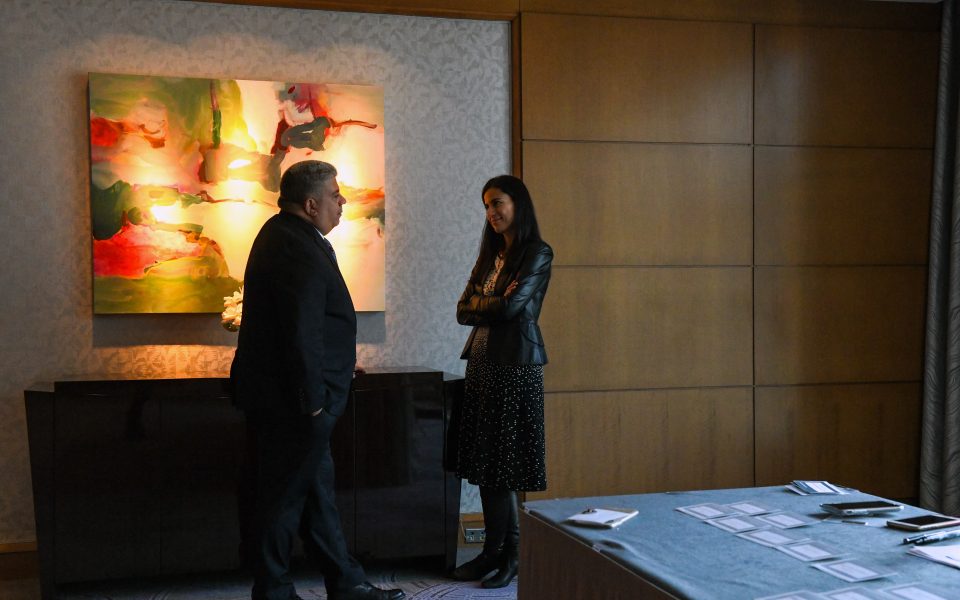Eight candidates compete for a job that may involve prosecuting Trump

The race to become Manhattan’s next district attorney is shaping up to be one of the most important in decades, a watershed contest that is likely to fundamentally change the mission of the prominent office and may affect the future of former President Donald Trump.
Yet the eight candidates are all relative unknowns, and with no public polling, there is no clear front-runner. The victor is likely to win the general election in November without having received a majority of votes in the Democratic primary.
Most of the candidates believe prosecutors should be sending fewer people to prison, especially for minor crimes, and that the office should play an active role in creating a less punitive, less racially biased criminal justice system.
The election is being watched as a test of what a borough considered to be a liberal bastion wants from its head prosecutor, and just how deeply voters want the criminal justice system to change.
“The Manhattan DA’s office is justifiably seen as one of the premier offices in the country,” said Eric H. Holder Jr., the US attorney general under former President Barack Obama. “What happens in the DA’s office will have an outsized influence on the path of reform around the country.”
The current officeholder, Cyrus Vance Jr., announced earlier this month that he would not seek reelection.
Vance, who has no plans to endorse a candidate, has held the position for three terms and was the hand-picked successor of Robert M. Morgenthau, who over four decades built the office’s reputation as one of the largest and most ambitious prosecutorial agencies in the country.
Vance’s announcement catapulted the race into the national spotlight, as his successor stands to inherit an investigation into whether Trump and his company committed fraud to obtain loans and tax benefits.
The race can be divided into two camps, with three candidates who have not worked as prosecutors and five who have.
The candidates who have never prosecuted a case — Tahanie Aboushi, Eliza Orlins and Dan Quart — have argued that the core work of the district attorney’s office needs to be revamped, shifting toward reducing incarceration and cutting back prosecution of low-level crimes.
Four of the former prosecutors — Alvin Bragg, Lucy Lang, Tali Farhadian Weinstein and Diana Florence — largely agree. But they have pitched themselves as occupying a middle ground, focused on less sweeping changes. A fifth former prosecutor, Liz Crotty, has been less vocal in calling for systemic change.
Ranked-choice voting — which allows voters to express whom they would support if their top choice does not win — will not be used in the primary June 22.
That means whoever gets the biggest slice of votes in the Democratic primary, even if far from a majority, will go on to the general election. There, victory is almost certain because so far there are no Republicans on the ballot.
The ‘Progressive Prosecutor’ Movement
In the decade since Vance took office in 2010, views of criminal justice have shifted in many urban centers, transforming elections for local prosecutors.
Activists — most prominently those in the Black Lives Matter movement — have used social media platforms to raise awareness of police violence, mass incarceration and racial bias in the justice system.
“We as a general society are seeing on a larger scale how things like police violence are impacting people’s lives,” said Nicole Smith Futrell, a law professor at the City University of New York.
Starting with the election of Kenneth P. Thompson as the Brooklyn district attorney in 2013, voters have rewarded candidates across the country who have focused on prosecutorial and police misconduct.
These politicians — often grouped together as “progressive prosecutors” — have included Larry Krasner in Philadelphia, Kim Foxx in Chicago and George Gascón in Los Angeles.
In New York City, Eric Gonzalez, who was elected as Brooklyn district attorney in 2017, said he wanted to lead “the most progressive DA’s office in the country.” A former public defender, Tiffany Cabán, who pledged to stop prosecuting low-level crimes, lost the race for Queens district attorney by the slimmest of margins in 2019.
The Candidates
Most of the candidates competing to succeed Vance said that they will redirect the power wielded by the Manhattan district attorney. Others have pledged to fundamentally reduce it.
Aboushi, 35, has pointed toward her adolescent experience of seeing her father convicted on federal conspiracy charges related to the theft of trucks transporting cigarettes. He was sent to prison for 22 years. Aboushi has said she wants to keep the district attorney’s office from harming families like her own.
Along with Orlins, she has committed to cutting the office in half. She has also stressed the use of alternatives to prison. She has won support from the left and has been endorsed by the Working Families Party, a power player in New York.
Aboushi, who has worked at her family’s law firm since 2010, would be the first woman, Muslim and nonwhite candidate to hold the office. (Every contender except for Quart would break at least one such barrier.)
Orlins and Quart are running campaigns in a similar vein. Orlins, 38, a longtime public defender, has a fiery social media presence and often mentions the damage that she said prosecutors did to her clients. She has pledged not to prosecute the majority of misdemeanors.
“I saw clients getting cycled through the system, getting locked up, getting bail set, getting offered ridiculous plea deals, spending a month or two months in jail for these low-level minor offenses,” she said.
Quart, 47, a seven-term assemblyman and the only candidate with any previous political experience, has argued that he is the only person running who has already changed the system. He points to his role in successful efforts to repeal laws that protected police from accountability and put thousands of people in jail for low-level crimes.
“My experience is about not just the rhetoric of reform, but actually achieving it,” Quart said.
All three have argued that it is a virtue never to have prosecuted anyone, suggesting that the very act of prosecution should bear some stigma. By contrast, the ex-prosecutors in the race sprinkle suggestions for change with specifics on how to curtail certain crimes.
Alvin Bragg, 47, the only Black candidate, seems comfortable running both as a reformer and a career law enforcement official. Bragg, who was a federal prosecutor in Manhattan and later chief deputy attorney general in New York, was the only candidate to appear at both a “decarceral debate” held by public defenders and a forum organized by alumni of the Manhattan district attorney’s office — audiences with opposing viewpoints.
Bragg has leaned on his roots in Harlem. He often brings up the half-dozen times he has had a gun pointed at him, including three encounters involving police officers. He has said he wants to reduce unnecessary incarceration and fight crime.
“One thing we need to reject is this false dichotomy that you’ve got between civil rights and public safety,” he said.
Bragg’s closest competitor in straddling the two camps is Lucy Lang, who worked at the Manhattan district attorney’s office for 12 years. Lang, 40, is steeped in policy and has released the outlines of her approach to dozens of issues, from sex crimes to restorative justice. She presents herself as someone who would change the office but also has the experience to manage high-profile cases.
Tali Farhadian Weinstein, 45, a former federal prosecutor and general counsel in the Brooklyn district attorney’s office, is running a more conservative campaign than her colleagues and has a substantial lead in fundraising. She has been endorsed by Holder, with whom she worked at the Department of Justice.
Although she emphasizes her experience in Brooklyn, where she led a unit that reviews convictions, Farhadian Weinstein has also been direct in describing her approach to prosecution. “You can’t just identify the problem,” she said. “You also then have to have a positive agenda about what the solution is.”
The final two candidates stand apart from the field for different reasons.
Florence, 50, is also a veteran of the Manhattan district attorney’s office and spent much of her career prosecuting fraud and corruption cases. She wants the office to refocus its energy on cases against the powerful.
But she must overcome a significant hurdle: She resigned from the office after a judge found that she had withheld evidence from defense lawyers in a major bribery case, a serious ethical violation. A spokesperson for Florence’s campaign said she has taken “full responsibility” for the mistake.
Crotty, 50, a former assistant district attorney under Morgenthau, has conformed least to the blueprint set by the other contenders. Although she acknowledges systemic racism, she is loath to call for systemic solutions, saying instead that she will evaluate matters on a case-by-case basis. She has pledged to strengthen the office’s investigations of white-collar crime.
The Trump Investigation
Vance is likely to decide whether to seek an indictment against Trump before he leaves office. If he does, the next district attorney will have to handle the prosecution of a former president.
The candidates have been reluctant to discuss the case in detail, saying it would be unethical to offer an opinion without seeing the evidence firsthand.
It is unclear how the prospect of a trial of a former president might influence voters. Some strategists say it would matter little. Others say it favors experienced prosecutors.
“This is Manhattan,” said Karen Friedman Agnifilo, Vance’s former deputy. “You’re going to have high-profile, high-interest, serious crimes. You need people who know how to handle those cases.”
[The New York Times]






